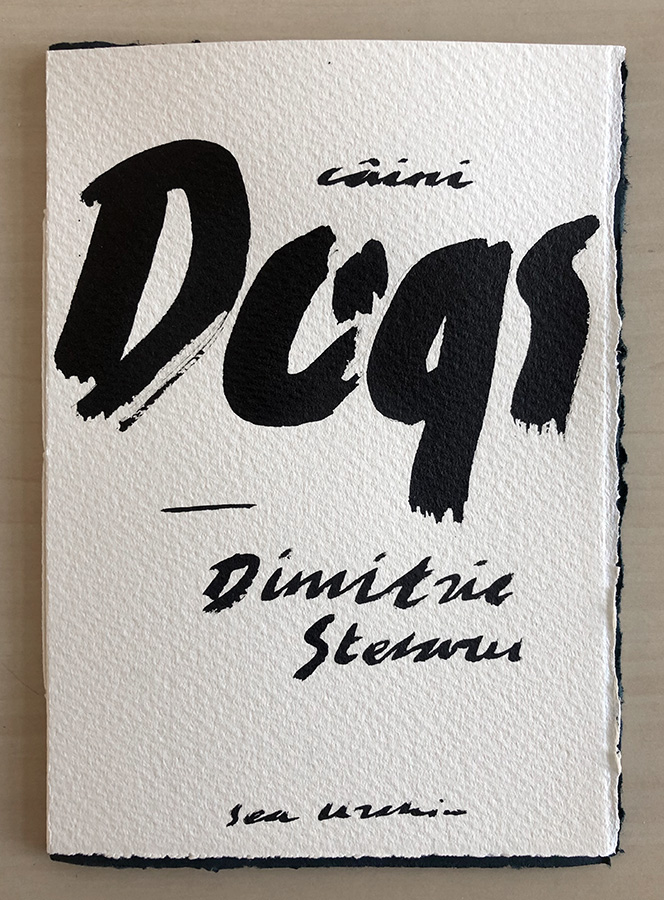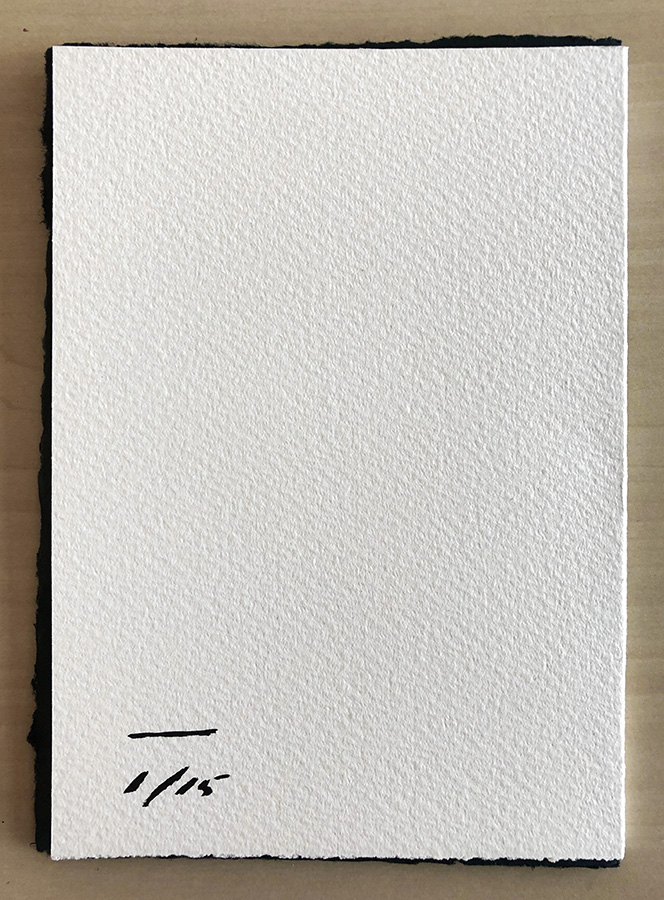
Poet: Dimitrie Stelaru
Publisher: Sea Urchin
Year: 2021
Size: 210 x 140 x 4 mm
Language: English
4 pages printed on 200 gr paper, flyleaf of hand dipped Japanese paper
Cover: ink on 300 gr Saunders Waterford
Artwork & translation : Ben Schot
Hand made edition of 15
Poète maudit and vagabond Dimitrie Stelaru was born in 1917 as Dumitru Petrescu in Romania’s border region with Bulgaria. He never knew his biological father, who was killed in action during World War I, and developed such a bad relationship with his stepfather that he was sent to a strict Christian boarding school in Transylvania at the age of fourteen. Stelaru escaped the institute’s austere regime a couple of years later and vanished in the fringe of Bucharest’s society. There he did odd jobs, lived in sordid conditions and published his first volume of poetry in 1935 under the pseudonym D. Orfanul. Several years later he adopted the penname Stelaru and befriended the poets Constant Tonegaru, Geo Dumitrescu and Ion Caraion, who hung out in the cafés of Bucharest’s Gara de Nord district. The works of this bohemian and escapist literary circle, which would become known as Romania’s lost generation, can be considered to be a continuation of the long line of Romanian Francophile symbolists. Stelaru retraced this line to its origins and took direct inspiration from Paul Verlaine, Charles Baudelaire and the latter’s translations of Edgar Allan Poe. Stelaru’s poems were for the greater part published in Dumitrescu’s literary magazine Albatros, until it was shut down by Ion Antonescu’s fascist regime in 1942.
 Stelaru’s poem Câini was first published in the nationalist paper Universul literar in 1942, shortly after the fascist ban of the Albatros magazine. The poem, a brief fable in verse, has now been translated into English and published by Sea Urchin as Dogs. Against the backdrop of Ion Antonescu’s pact with Nazi Germany during World War II and the Romanian Orthodox Church’s alliance with the death cult of the fascist Iron Guard, it would be hard not to read references to the political situation in Romania of the period in this compact and powerful poem.
Stelaru’s poem Câini was first published in the nationalist paper Universul literar in 1942, shortly after the fascist ban of the Albatros magazine. The poem, a brief fable in verse, has now been translated into English and published by Sea Urchin as Dogs. Against the backdrop of Ion Antonescu’s pact with Nazi Germany during World War II and the Romanian Orthodox Church’s alliance with the death cult of the fascist Iron Guard, it would be hard not to read references to the political situation in Romania of the period in this compact and powerful poem.


